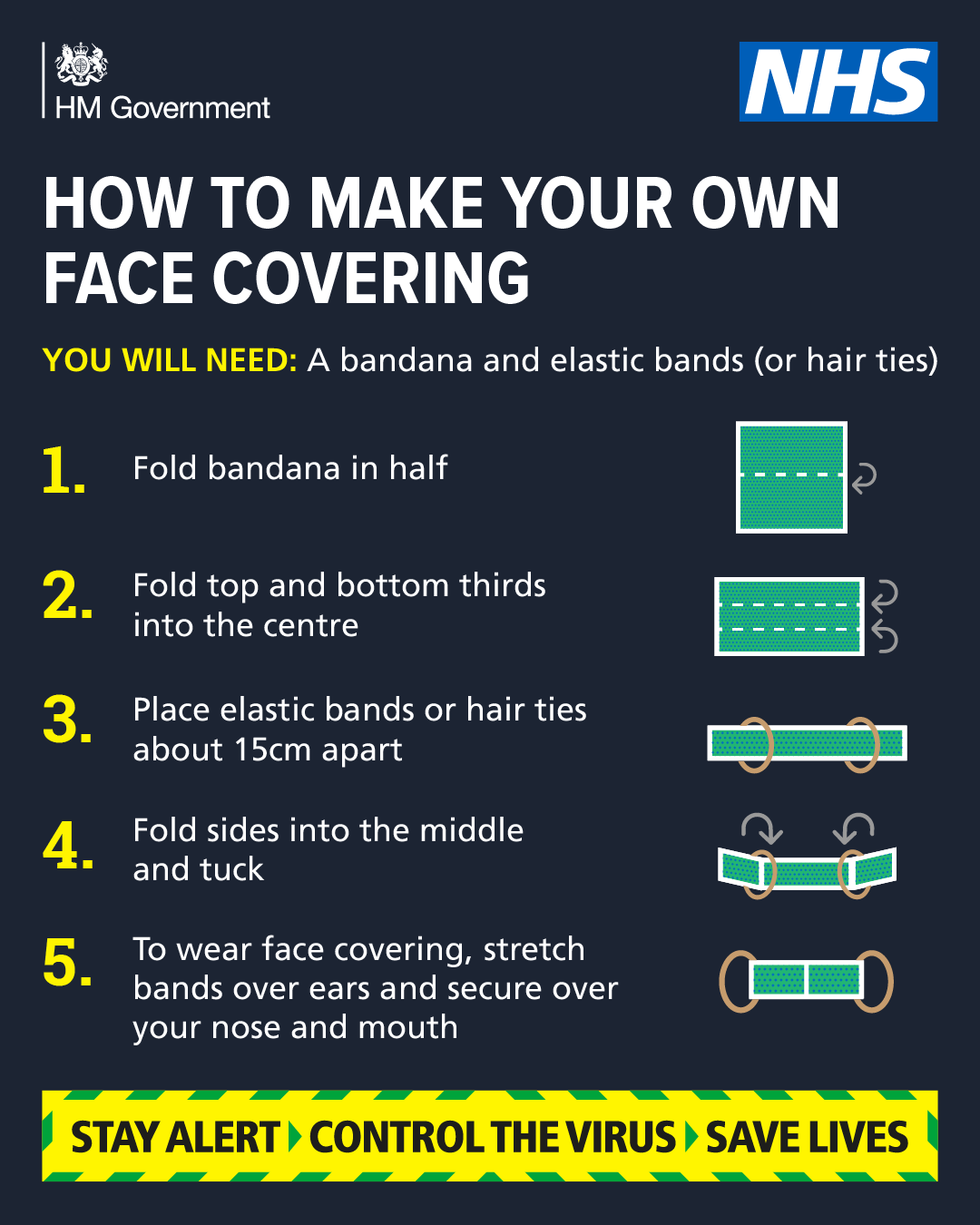 Announced by Matt Hancock, Secretary of State for Health and Social Care last week, all hospital visitors and outpatients will have to wear face coverings, and all staff will have to wear surgical masks at all times, in all areas from Monday 15 June. Similar rules will also be in place for people using public transport.
Announced by Matt Hancock, Secretary of State for Health and Social Care last week, all hospital visitors and outpatients will have to wear face coverings, and all staff will have to wear surgical masks at all times, in all areas from Monday 15 June. Similar rules will also be in place for people using public transport.
This follows established advice which recommends the use of these items in some enclosed spaces when social distancing isn’t possible.
For local residents, the Government is recommending the use of simple, double-ply coverings which can be easily made at home, or purchased from a number of trusted retailers. Colleagues within the NHS and other care settings will continue to make use of fluid repellent masks (also known as surgical masks).
Speaking on behalf of both NHS Trusts, Dr Ken Agwuh, Consultant Microbiologist and Director of Infection Prevention and Control at Doncaster and Bassetlaw Teaching Hospitals, said: “Both locally and nationally cases of Covid-19 continue to decline. It is now more important than ever that we manage any further outbreaks and ensure we take all appropriate steps to minimise the spread of the illness in our hospitals and related care settings as we begin to see the easing of lockdown measures.
“If you are visiting a DBTH or RDaSH service, please wear an appropriate face covering. This doesn’t just offer you a level of protection, it also ensures that you are not spreading any coughs, sneezes or other expulsions. You can be completely without symptoms and still have Covid-19 so every measure you can take will help.”
If you are coming to either Doncaster Royal Infirmary, Bassetlaw Hospital or Montagu Hospital due to an emergency or for urgent treatment, face coverings will be provided by reception colleagues.
Dr Agwuh continues: “In South Yorkshire and Bassetlaw, we have made good progress and local rates of infection continue to decline. We want to ensure that this continues – please do this for Doncaster, Worksop and the local area and help us make this a Covid-19 free zone.”
The compulsory wearing of face coverings will come into place on 15 June in hospital and clinical settings, as well as public transport.
How to wear a face covering effectively
A cloth face covering should cover your mouth and nose while allowing you to breathe comfortably. It can be as simple as a scarf or bandana that ties behind the head.
Wash before use.
Do not put the covering around your neck or up on your head.
Wash your hands or use hand sanitiser before putting it on and after taking it off. Avoid touching your eyes, nose, or mouth at all times and store used face coverings in a plastic bag until you have an opportunity to wash them.
Do not touch the front of the face covering, or the part of the face covering that has been in contact with your mouth and nose. Once removed, make sure you clean any surfaces the face covering has touched.
You should wash the face covering regularly, ideally daily. It can go in with other laundry, using your normal detergent, at the warmest appropriate setting for the cloth used to make the face covering.
Once washed, allow to completely dry before re-using.




